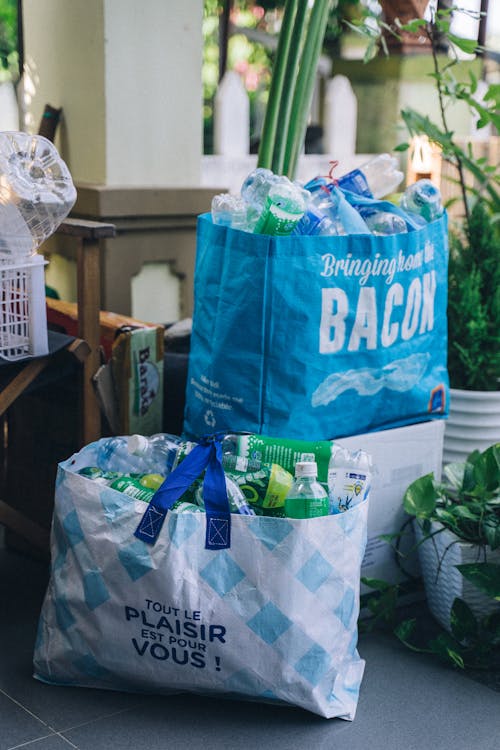
The Rise of Sustainable Pet Care
As environmental awareness grows, the pet care industry is also evolving, with a significant shift towards sustainability. This movement is not just about creating eco-friendly products but also about understanding the environmental impact of pet ownership, particularly of dogs.
This article explores the trend of eco-friendly dog care, examining sustainable pet products, environmentally friendly dog foods, and the overall impact of dogs on the environment.
The Growing Demand for Sustainable Pet Products
The pet industry has seen a surge in demand for sustainable products. Dog owners are increasingly seeking out items made from recycled materials, biodegradable products, and sustainably sourced goods. This includes everything from leashes and beds made from recycled plastics to biodegradable waste bags.
These products aim to reduce the environmental footprint of pet ownership, addressing concerns such as plastic pollution and waste management.
Innovations in Eco-Friendly Dog Foods
Perhaps one of the most significant areas of sustainable pet care is dog food. The production of pet food, particularly meat-based diets, has a considerable environmental impact. To address this, there has been a rise in eco-friendly dog food options, including:
- Plant-based Diets: While dogs are predominantly carnivorous, there’s growing interest in plant-based diets that are well-balanced and meet nutritional needs. These diets are less resource-intensive and have a lower environmental impact compared to traditional meat-based foods.
- Sustainable Protein Sources: Some pet food companies are turning to sustainable protein sources like insects, which require less water, land, and produce fewer greenhouse gases than traditional livestock farming.
- Locally Sourced Ingredients: Another trend is the use of locally sourced ingredients to reduce the carbon footprint associated with transportation.
The Impact of Dogs on the Environment
Understanding the environmental impact of dogs is crucial in shaping sustainable pet care practices. Dogs, like humans, have a carbon footprint. This footprint is influenced by various factors, including diet, waste, and the products used in their care. For instance, the production and disposal of dog food packaging contribute to pollution and waste.
Reducing the Carbon Pawprint
To minimize the environmental impact, dog owners are encouraged to adopt sustainable practices. This includes choosing eco-friendly products, managing waste responsibly, and considering the environmental impact of their pet’s diet.
Simple steps like using biodegradable poop bags, recycling pet food containers, and opting for sustainably produced foods can make a significant difference.
Sustainable Dog Grooming Products
The rise of eco-friendly grooming products is another facet of sustainable pet care. This includes shampoos, conditioners, and other grooming essentials made from natural, organic ingredients that are free from harmful chemicals.
These products are not only better for the environment but also gentler on a dog’s skin and coat.
Eco-Friendly Pet Toys and Accessories
There’s also a growing market for eco-friendly pet toys and accessories. These items are often made from sustainable materials like organic cotton, hemp, or recycled rubber. They provide a safe and environmentally friendly option for pet owners who want to keep their dogs entertained without compromising on sustainability.
The Role of Technology in Sustainable Pet Care
Technology plays a pivotal role in advancing sustainable pet care. Innovations like biodegradable microchips and apps that promote eco-friendly pet practices are on the rise. These technologies aim to make sustainable pet care more accessible and effective.
Community Involvement and Education
Educating pet owners about sustainable practices is essential for the movement’s success. Community initiatives, workshops, and campaigns can play a significant role in raising awareness about the environmental impact of pet ownership and ways to mitigate it.
Challenges and Future Directions
While the trend towards sustainable pet care is promising, it’s not without challenges. Cost can be a barrier, as eco-friendly products often come with a higher price tag. Additionally, there’s a need for more widespread education and awareness about the benefits of sustainable pet care, both for the environment and for the health of pets.
Conclusion
The rise of sustainable pet care, particularly for dogs, reflects a broader shift towards environmental responsibility. By choosing eco-friendly products, considering the environmental impact of our pet’s diet, and adopting sustainable practices, dog owners and breeders of Cavoodles, Labradors, and other breeds, can play a significant part in protecting the planet.
As the industry continues to evolve, it offers a hopeful outlook for the future of pet care, where sustainability and responsibility go hand in hand with the love and care we provide our canine companions.

